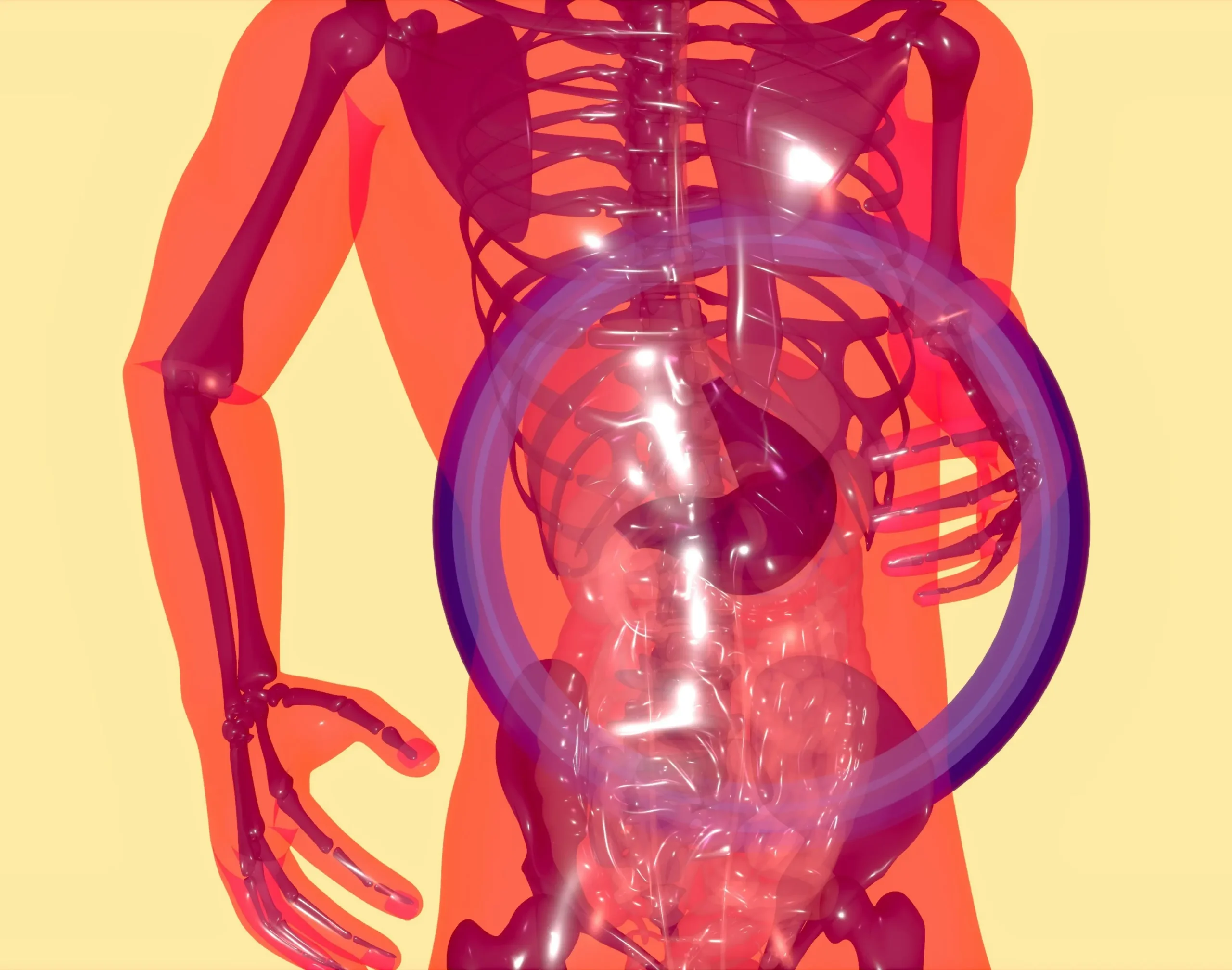When most people think about staying healthy, they focus on diet, exercise, and sleep. These are essential pillars of wellbeing, but there’s another factor that’s just as important and often overlooked: the microbiome.
Your microbiome is made up of trillions of bacteria, fungi, and other microorganisms that live in and on your body—mostly in your gut. Far from being something to fear, these microbes are partners in your health. They help with digestion, support your immune system, influence your mood, and even affect long-term disease risk.
The latest science is showing that if you want to feel your best, you need to look after your microbiome. That’s exactly why we developed our MicroBiome – Gut Health Support supplement: to give your gut the beneficial bacteria and prebiotic fibers it needs to thrive.
What Is the Microbiome?
Think of your microbiome as a bustling city of microbes living inside you. Each of us has a unique “fingerprint” of microbes, and they outnumber our own human cells. In fact, your gut alone may contain 100 trillion microorganisms—that’s more than the stars in our galaxy.
These microbes aren’t freeloaders; they’re working hard every day to keep you healthy. When your microbiome is balanced, you feel the benefits in energy, digestion, mood, and immunity. When it’s out of balance, problems can creep in—everything from bloating and low energy to more serious health issues.
Why Your Microbiome Matters
1. Digestive Health
Your gut bacteria help break down food, extract nutrients, and produce short-chain fatty acids that fuel your gut lining. Without a healthy microbiome, even the best diet won’t be fully absorbed.
Our MicroBiome – Gut Health Support contains carefully chosen probiotic strains and plant-based prebiotic fibers to keep digestion running smoothly and efficiently.
2. Immune Support
Did you know about 70% of your immune system is based in your gut? Friendly bacteria act like trainers, teaching your immune cells how to fight off pathogens without overreacting.
When your microbiome is supported, you’re better equipped to defend against infections and reduce unwanted inflammation. Our formula was designed with this in mind—giving your gut the good bacteria it needs to protect your health.
3. Defending Against Harmful Bacteria
A healthy microbiome acts like a protective shield, blocking harmful bacteria and creating an environment where invaders can’t thrive. But stress, antibiotics, and poor diet can break down that defense.
That’s why adding a targeted probiotic and prebiotic supplement can make a real difference. MicroBiome – Gut Health Support helps restore balance, making sure the “good guys” always outnumber the “bad guys.”
4. Weight and Metabolism
Gut bacteria influence how efficiently you extract calories, how your body stores fat, and even your cravings. People with more diverse microbiomes tend to have healthier weight management.
Our supplement includes ingredients to feed beneficial microbes linked to better metabolic health, helping support your weight goals naturally.
5. Mood and Mental Health
Your gut and brain are deeply connected through the gut-brain axis. In fact, 90% of serotonin—your “feel-good” chemical—is made in the gut. When your microbiome is balanced, your mood and mental clarity benefit.
That’s why many customers report feeling more energetic and positive after regularly taking MicroBiom
6. Skin Health
Ever noticed how your skin reflects your inner health? A balanced gut reduces inflammation and helps with conditions like acne, eczema, and redness. By improving gut balance, our supplement can also support clearer, healthier-looking skin.
7. Long-Term Wellness
From heart health to diabetes and even cognitive decline, scientists are finding links between microbiome health and chronic disease. A diverse, well-fed microbiome isn’t just about feeling good today—it’s about protecting your future.
Taking daily steps now, including the right supplementation, is one of the best long-term investments you can make for your health.
What Damages the Microbiome?
Unfortunately, modern life is tough on our microbiomes. Common disruptors include:
- Antibiotics (they wipe out both good and bad bacteria)
- Processed foods and sugar (feed the wrong microbes)
- Stress and poor sleep (throw the gut-brain connection off balance)
- Low fiber diets (starve beneficial bacteria)
- Environmental toxins and medications
If you’ve ever felt bloated, run down, or struggled with digestion after antibiotics or poor diet, you’ve experienced firsthand what happens when the microbiome gets knocked off balance.
How to Support Your Microbiome Naturally
1. Eat a Wide Range of Plants
Diversity in your diet means diversity in your microbiome. Aim for fruits, vegetables, nuts, seeds, and legumes.
2. Add Prebiotics
Prebiotics are fibers that feed your good bacteria. Foods like onions, garlic, and oats are great sources—but our supplement also contains plant fibers carefully selected to nourish your gut microbes.
3. Include Probiotic Foods
Fermented foods like yogurt, sauerkraut, and kimchi add live beneficial bacteria. If these aren’t always easy to include in your diet, a high-quality probiotic supplement fills the gap.
4. Manage Stress and Sleep Well
Your gut bacteria respond to your lifestyle. Good sleep and stress reduction directly benefit gut balance.
5. Supplement Wisely
This is where MicroBiome – Gut Health Support comes in. With its unique blend of probiotics and prebiotics, it helps maintain a balanced gut environment every single day—something not always possible from diet alone.
Why We Created MicroBiome – Gut Health Support
We saw how many people struggle with digestive issues, fatigue, or recurring infections—and how often these problems link back to gut imbalance. So we designed a supplement that works on two levels:
- Probiotics – carefully chosen strains of good bacteria that survive stomach acid and reach your gut alive.
- Prebiotics – natural plant fibers that feed those bacteria, helping them thrive and multiply.
Together, they create a healthier gut environment, supporting digestion, immunity, energy, mood, and overall wellbeing.
Unlike many supplements, ours is made with clean, high-quality ingredients, with no unnecessary fillers. It’s also suitable for vegetarians and vegans, making it a gut health solution for everyone.
The Future of Microbiome Science
Researchers are calling the microbiome the “new frontier” in medicine. From personalized diets to cutting-edge therapies, the microbiome is at the heart of exciting discoveries. But you don’t need to wait for the future—you can start supporting your microbiome today with proven, practical steps.
Conclusion: Put Your Gut First
Your microbiome is more than just bacteria—it’s a vital partner in your health. From digestion and immunity to mood and long-term wellbeing, it touches every part of your life.
The modern lifestyle makes it harder than ever to keep your microbiome balanced, but the good news is you can take control. Eat well, manage stress, get sleep, and most importantly, give your gut the extra support it needs.
That’s exactly what MicroBiome – Gut Health Support was designed for. By combining probiotics and prebiotics, it gives your gut everything it needs to stay balanced, strong, and resilient.
When you look after your microbiome, you’re not just improving your gut—you’re building the foundation for better energy, stronger immunity, clearer skin, and a healthier future.
Why should I take probiotics?
They help balance your gut bacteria, improve digestion, support immunity, and may even boost mood and energy.
4. Why are prebiotics important?
Without prebiotics, probiotics don’t thrive. They act like fertilizer for your gut, ensuring healthy bacteria multiply.
Can I take prebiotics and probiotics together?
Yes! Taken together, they form a “synbiotic” effect, where probiotics deliver good bacteria and prebiotics help them grow.
What foods contain probiotics?
Yogurt, kefir, sauerkraut, kimchi, miso, and kombucha are natural sources of probiotics.
What foods contain prebiotics?
Onions, garlic, bananas, asparagus, chicory root, and Jerusalem artichoke are rich in prebiotics.
How long does it take to notice results from supplements?
Some people feel benefits in a few days, while for others it may take 2–4 weeks of consistent use.
Are there any side effects?
Some people may experience mild bloating or gas at first, but this usually settles as the gut adjusts.
Who should consider taking them?
Anyone looking to improve digestion, immunity, or overall gut balance may benefit—especially if diet alone doesn’t provide enough.





